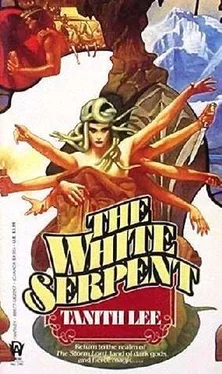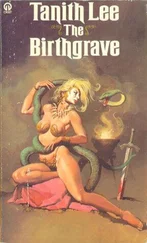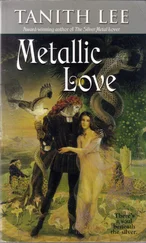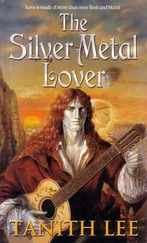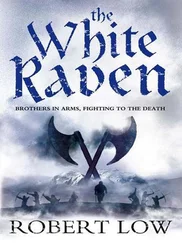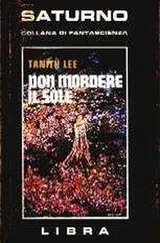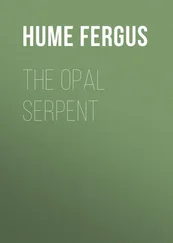Like the heat and the land, Tibo, blooming and swelling, the bud of her belly taut with its fruit.
Orhn seemed to have some memory of his mother’s pregnancies. He was interested and encouraging. He sometimes touched the hill of flesh, delicately, and made extra room for Tibo in their bed. When the child began to move, she let him feel it, placing his palm there. Orhn laughed. Perhaps he believed, if capable of such logic, that a miracle had indeed occurred, and that the sowing was his.
Orbin did not often speak to Tibo, never of her. Only when the hired men were about and she passed among them, to take them food or on some other errand, Orbin behaved normally. The men congratulated Orhn, and Orbin guffawed and nodded and Orhn copied him.
In the house, if he wanted something, Orbin pointed, or thrust objects under Tibo’s nose. When he must address her, he did so from a great way off, shouting. He did not even strike her any more. Partly, too, that was out of caution. If he had been less religious he would have liked to kick her in the stomach, abort the bitch. But he dared not. Though the law was abused, and though the child, even if a boy, was a half-breed, still any pregnant woman had the mark of Cah on her.
On her side, Tibo continued to serve the household as she had always done. She stinted not at all. If she was tired or in discomfort she never showed it, it did not slow or stay her.
The heat flamed, boiled over. Zastis scalded the night and Orbin was often away. Then Zastis was gone and Orbin back. The year began to yellow.
Harvesting and slaughtering came due, the yard full of cereals, of tubers and cabbage, and then awash with blood.
The slaughterer-priests looked at Tibo. And at Orhn.
“We’ve made enough offerings,” said Orbin. Tibo heard him say it as she drew water from the well. “He’s always had his full pleasure, but I reckoned she was wombless. Blessed be Cah, it’s good luck.” And he gave the priests larger portions than usual of the carcasses, for Cah’s temple, to show the family gratitude.
It was a ten-month term for a Vis women, ten wide Vis months. Planted just past one midwinter, the child would be born at the cold season’s next commencement.
Tibo thought of that in the fading days of the heat, as she plucked the orange citruses among the rocks.
She might perish, bearing the child. No one would come to her. There were no other capable women at the farm who might assist. She would be alone in labor with two idiots and an enemy.
But these musings seemed irrelevant. She would bear, and live. And Orbin would be afraid to harm her, for a new mother, also, was Cah’s.
It was awkward for her, so big now, to gather all the fruit, but she managed it, eventually. In the late sunset she lifted the last baskets, and saw suddenly, between the trees and hard summer rocks, a curious pale runnel in the ground.
She had had such a glimpse before here, once or twice. The earth was constantly torn open by cold weather, closed again by undergrowth in the heat. Sometimes areas in the soil gave way. Then you saw, deep down, this peculiar underlayer. Some thing lay there, beneath the topsoil, rocks and tree roots. Smooth, like steel, dark white, like ancient porcelain.
Tibo had no wish to learn its nature. She feared it, obscurely.
Soon the storms would come, and then the snow probably, and hide the unordinary from sight.
Taking her baskets of fruit, Tibo turned toward the pasture and the hovel-house, and pushed the memory from her mind by visualizing the changing of the days, copper to bronze, bronze to iron.
It began early.
There had been a flurry of hail, frisking over the valley, the sun a broken egg of light pierced by mountain tops. And as she cracked the skin of ice in the well, a shriek of pain ran through the core of her.
She completed her duties swiftly then, even running, where the ice and pain permitted.
She did not speak to Orbin, but set out the supper, then went away to the dog-shed, where she had already made a birthing bed for herself, catlike, with all the items laid by she would need. It was appropriate that she strive and bear here, where she had taken the child in, and by the glow and warmth of the same brazier.
The dogs, for the most part, ignored her. Blackness and Rag, the two bitches, sensing kinship, came occasionally and stared in her face and licked her wrists.
The pains ran together. She heaved and moaned, gripping in her hands, and pulling against, the rope with which she had circled her lifted waist. As the rope tightened and relaxed with the spasms, its strangling burn momentarily distracted from the tearing pain within: An old Iscaian woman’s trick. Cah’s teaching.
Once she thought Orbin had come to the shed door and listened.
In her anguish Tibo called aloud the traditional words:
“Cah! Cah, aid me!”
She was safe from Orbin. She was Cah’s.
After some hours, her pain burst in and from her. With a scream of terror and agony and release, Tibo watched the head of her baby pushed into the world. When the body came out, Tibo saw she had birthed a perfect living creature. She hastened to cut and knot the cord, to clean the child’s mouth and skin. It cried and breathed, blind as a puppy. Blackness came and investigated the baby, thrusting her long nose against the child, and Tibo pushed her away, mildly. Exhausted, she brought her child to her breast. Her invention, he lived, as she did, and was a male as she was not.
Katemval Am Alisaar, saddle-sore, snow-sick, shouted his men off the track, in order to make way for a descending funeral.
Traveling as he did, needing travel and yet never hardened to it, Katemval had witnessed a variety of events. He knew, in this instance, how the Iscaians were, and was not amazed to see only women out in the cold; that meant only a woman had died.
It had been audible, the dull resonance of the bronze gongs, from two miles away, in the high clear air.
Then they came down the track, dark on young snow, first fall, and powdery—the snows of the western mountains were nothing, even at their worst, to a winter of the Middle Lands, Dorthar, Xarabiss, let alone Lanelyr in the east.
Some of the men, superstitious, made religious signs.
One, an Iscaian, turned his head and looked aside. It was unfortunate to regard upland feminine rites.
Four women carried the coffin, which was of rough untidy wood and nailed shut. Such biers seldom needed more than four porters for the wretched uplands did not generate plumpness in either sex. Strong though, often, both genders; his reason for being here, the Alisaarian, on his large black thoroughbred—an animal maybe these villagers had never seen. Although they did not glance at it as they went by, walking before and after their dead, banging the gongs with the flats of their narrow gloveless hands.
There was one—the chief mourner, to judge by her position exactly behind the coffin. Katemval’s eyes followed her a way along the curve of the slope. Something special there, something that might have been worth going after, twenty years earlier. Too late now. She had been bent and coiled to her existence, as was all humanity, like a vine to a stock. You took them as children if you wanted them formed to a purpose.
The track wound down and away into the white afternoon, and the procession with it, the crags of the Iscah-Zakoris borders a dim shadowy backdrop. The drone of the gongs lingered after the women had vanished.
“Come on,” Katemval said, to his five men. “Or do you want to freeze in the saddle?”
It was a joke, of a sort. Save for her northern and eastern hem, Alisaar never knew snow. These effete western-upland colds were horrible to an Alisaarian, or to the man of the Iscaian lowlands, reared under the snow-line.
Читать дальше
